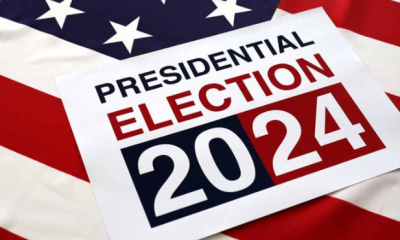The Biden administration seems to be scaling down its initial suggestions for regulations on gas stoves. According to the Department of Energy’s (DOE) most recent directives unveiled on January 24, new appliances must now exhibit an efficiency improvement of at least 30% compared to the current most efficient models in the market.
Nevertheless, these regulations primarily pertain to electric stoves, given that about 98% of gas-powered models already adhere to the specified standards.
The revised guidelines for fresh cooking appliances are projected to become enforceable on January 31, 2028. This four-year interval provides companies and manufacturers with the opportunity to adapt, plan for new models, and make necessary adjustments to their production processes.
The Department of Energy (DOE) had previously issued a distinct set of updated efficiency standards for commercial fans and blowers, household refrigerators, and freezers on December 29, 2023. Nevertheless, the recent modifications are a result of a collective proposal from significant stakeholders, submitted to the department in September.
According to the Department of Energy (DOE), the combined alterations are anticipated to result in Americans saving up to $1.6 billion on their utility expenses over a span of 30 years. However, opinions on this potential benefit were not unanimous.
Initially, the broader environmental goals of the Biden administration aimed to substantially enhance energy efficiency standards for almost all home appliances, encompassing as much as 50% of all gas stoves.
Nevertheless, the suggested concept faced swift resistance from experts, organizations, and the general public alike. Numerous individuals accused the government of attempting to silently prohibit appliances powered by fuel altogether.
The Department of Energy (DOE) ultimately debunked the notion of an imminent ban, categorizing it as a misconception. Nonetheless, substantial concerns persisted regarding the potential repercussions of the stringent modifications on consumer choices and the broader economy.
In April 2023, a coalition of 18 experts and industry leaders collaborated to submit comments to the DOE regarding the issue. Their contention was that the suggested modifications would be detrimental rather than beneficial to ordinary Americans.
Within a brief span of a few months, in July, members from both the Democratic and Republican parties in the House united to approve the Save Our Gas Stoves Act. This legislation aimed to thwart the initial endeavors by the DOE to regulate new cooking appliances.
The recent directives from the Department of Energy (DOE) represent a middle ground, balancing the Biden administration’s focus on conservation, expert counsel, and public grievances. While viewed as a positive move by many, it does not assure that the administration won’t revert to more stringent regulations in the future.













